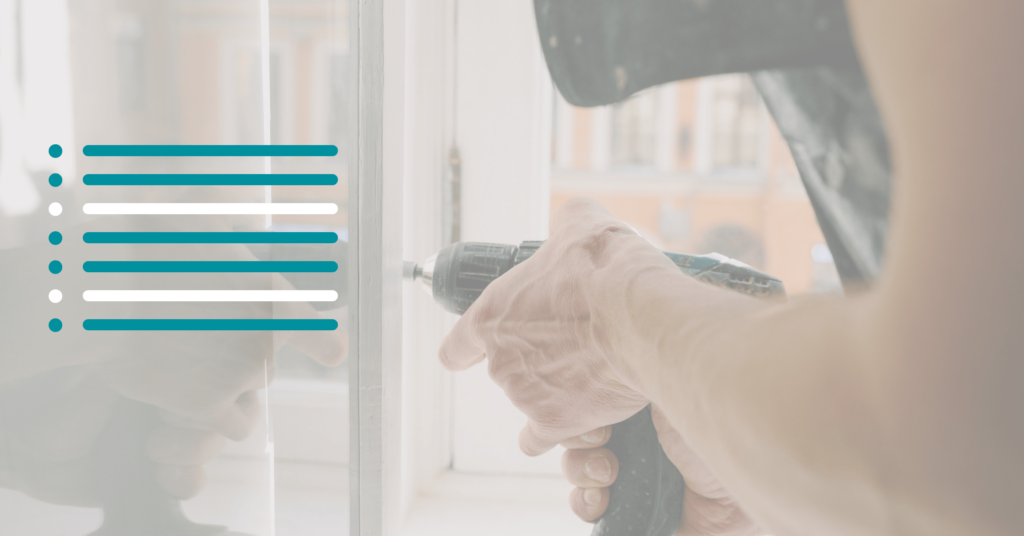Legal and Optional Tenant Maintenance Responsibilities
A Guideline for Landlords and Tenants
- FrontLobby
- Published
- Updated November 26, 2023

Table of Contents
One of the most crucial elements towards building a good Landlord-Tenant relationship is the clear understanding of maintenance responsibilities. Even the most well-kept rental properties will need maintenance and repairs at one time or another. A lot of new Landlords have one common question: who is responsible for what?
While there are distinct responsibilities for Landlords and Tenants that are outlined by law, some occasions do arise where it is not exactly black and white. Here are some guidelines that you can refer to, when such occasions happen.
What are the Responsibilities of a Landlord?
All the major responsibilities of a Landlord are tied to three main factors: safety, hygiene, and comfort. They have a civic duty to make the rental property meet certain standards in order to be inhabitable for their Tenants.
Ensure good working conditions for all essential services
Everything a Landlord provides along with their property should be in good working condition. This includes plumbing, heating, air conditioning, and all electrical appliances. It is the Landlord’s duty to make sure that all these amenities and features are functioning well, and to replace them if they aren’t. It is worth noting that a Landlord is not required to get a newer model with more features if an appliance breaks down. For example, to replace a broken refrigerator a Landlord can choose to get another used refrigerator that’s functioning adequately.
Facilitate trash disposal
A Landlord should make sure their Tenants have access to adequate trash receptacles. These trash bins should be enough for all Tenants, and the amount of trash that accumulates every week. Check your local town’s laws to see if the garbage bins require an enclosure around them.
Perform necessary repairs
If any aspect of a rental stops functioning, or works with reduced efficiency, a Landlord is duty-bound to fix it. This applies to doors, floors, ceilings, windows, light fixtures, carpets, walls, etc. Landlords should bear the cost of repairs for normal wear and tear that comes with regular usage. If a Tenant is found to have been directly responsible for any damage, the cost incurred in repairing or replacing can be deducted from their security deposit, if applicable.
Maintenance of common areas
Common areas include walkways, patios, corridors, parking areas, and pools. It is a Landlord’s duty to ensure safety and hygiene of these spots through adequate lighting and diligent repairs. If a Tenant is found to be the cause of common areas being constantly dirty, the Landlord can send them a notice to stop the behavior. Failure to do so may enable the Landlord to file for eviction.
Adhering to building codes
To protect the safety of their Tenants, Landlords should make sure their property complies with all local and building safety regulations. Having a rental inspection checklist during every routine inspection can assist Landlords in this process. Building safety codes can regulate the following:
- People per unit
- Toxic mold
- Asbestos
- Smoke detectors
- Carbon monoxide detectors
- Appropriate lighting
- Plumbing
- Electrical wiring
- Lead-based paint
- Structural integrity
- Pest control
It is also a Landlord’s duty to provide clean running water to all rental units, with access to hot water as well. The Landlord is not responsible for the billing of utilities if the lease states that the Tenant is responsible for it unless the Landlord intentionally interferes with the delivery of service without notice.

What are the responsibilities of a Tenant?
Tenants also have certain legal responsibilities that they’re expected to comply with. The following are some general Tenant duties:
Regular trash disposal
Trash left for a long period of time invites problems like mold, pest, and other health hazards. Tenants need to take their trash out periodically, and keep their unit clean up to a normal standard of hygiene. If a Tenant’s level of untidiness attracts pests or other hazards, the Landlord is not liable to pay for the damage incurred. The costs will be charged to the Tenant or deducted from their deposit, if applicable. In such a situation, the Landlord also has cause to file for eviction.
Uphold safety laws
Tampering with smoke detectors, violating the maximum number of persons per unit, blocking emergency exits – all of these are ill-advised and cause for eviction.
Being mindful
A Tenant is responsible for any damage to the property that is not due to normal wear and tear. This applies even if the Tenant didn’t cause the damage on purpose, and it happened because they weren’t careful enough. They are also responsible if this damage was caused by a guest visiting them, or by someone else living in their unit. A good Tenant treats their rental with care, and is respectful towards all amenities and appliances provided by the Landlord.
Timely reporting of all maintenance issues
Landlords must make sure to let their Tenants know that any maintenance or repairs need to be reported immediately. Issues left without addressing are bound to get worse over time.
The best way to encourage Tenants to report issues is by making it very easy for them to do so, and being as responsive as possible. Tenantcube has a very efficient system for reporting and addressing maintenance requests that is super easy for both Landlords and Tenants. Tenants can simply add requests in the application, along with a relevant picture or video. Landlords will immediately be notified and can assign appropriate personnel to the tasks. Real-time updates on the status of work orders will be visible to all parties involved.
Additional maintenance opportunities
Landlords and Tenants have often successfully agreed on additional ways Tenants can help with property maintenance. Tenants can negotiate with Landlords for a reduction in the monthly rent in exchange for taking on such responsibilities. These can include cleaning the common areas, taking out the garbage, and performing seasonal maintenance tasks like shoveling snow, cutting grass, etc. Sometimes, if a Tenant is licensed to do so, they may even be allowed to perform minor or major repairs themselves.
Good Ethical Practices
- The Tenant should always pay full rent on time, even if they feel their Landlord’s maintenance is poor or a repair hasn’t been done.
- It is illegal for a Landlord to have a clause in the lease agreement that holds the Tenant responsible for all maintenance activities.
- A Landlord should not withhold ‘vital services’ like hot/cold water, fuel, electricity, gas, etc even if rent is overdue or a Tenant has damaged their property.
- Before visiting a property for repair or inspection a Landlord should always give notice to the Tenant at least 24 hours prior, stating the date, reason, and time of entry.
While laws and lease agreements exist to regulate Landlord and Tenant behavior, common sense and decency also go a long way in promoting a good, mutually beneficial relationship.
Disclaimer
The information provided in this post is not intended to be construed as legal advice, nor should it be considered a substitute for obtaining individual legal counsel or consulting your local, state, federal or provincial tenancy laws.

Did You Enjoy This Article?
Then You Will Love Our Newsletter
